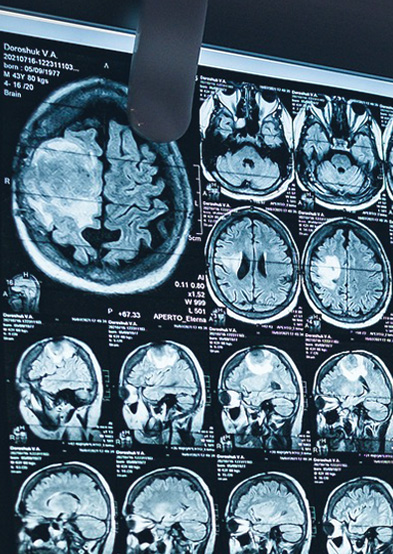Invest in Your Health
Choose the right health screening package for you, with all tests conducted on-site in a single day.
MRI ONLY
$2,450
Inclusions:
- Pre-Consultation (With a Physician)
- Targeted MRI
- Follow-up Consultation (with a Physician)
Optional Extras +
- InBody Scan (body composition analysis) – $120
- Personalised Nutritional Assessment – $200
- Colonoscopy* – $350
- Gastroscopy* – $350
- Gastroscopy and Colonoscopy* – $600
- Microbiome Test (Gutlinx) – $600
- Biological Age Test (GrimAge) – $950
- Genetic Panel of 65 Cancer Genes – $950
- Genetic Panel of 83 Cardiac – $950
- Genetic Panel of 167 Cancer and Cardiac Genes – $1200
*If Clinically Indicated. Price applies to our Hampton East Clinic. Prices may vary by location.
Medicare & Private Health Insurance Rebates are not available.
The HealthScreen Exam
$3,500
Inclusions:
- Detailed Medical History and Physical Examination (including melanoma check)
- Comprehensive Lab analysis and Blood Profile, ECG and Urine Analysis
- CT Calcium Score*
- Targeted MRI
- Ultrasound Carotid Doppler
- Ultrasound of the Thyroid
- Follow-up consultation
Optional Extras +
- InBody Scan (body composition analysis) – $120
- Personalised Nutritional Assessment – $200
- Colonoscopy** – $350
- Gastroscopy** – $350
- Gastroscopy and Colonoscopy** – $600
- Microbiome Test (Gutlinx) – $600
- Biological Age Test (GrimAge) – $950
- Genetic Panel of 65 Cancer Genes – $950
- Genetic Panel of 83 Cardiac – $950
- Genetic Panel of 167 Cancer and Cardiac Genes – $1200
*If Clinically Indicated
**If Clinically Indicated. Price applies to our Hampton East Clinic. Prices may vary by location.
Medicare & Private Health Insurance Rebates are not available.
HealthScreen Exam | Platinum $5,900
Inclusions:
- Detailed Medical History and Physical Examination (including melanoma check)
- Comprehensive Lab analysis and Blood Profile, ECG and Urine Analysis
- CT Calcium Score*
- Targeted MRI
- Ultrasound Carotid Doppler
- Ultrasound of the Thyroid
- Follow-up consultation
- InBody Scan (body composition analysis)
- Personalised Nutritional Assessment
- Microbiome Test (Gutlinx)
- Biological Age Test (GrimAge)
- Genetic Panel of 167 Cancer and Cardiac Genes
*If Clinically Indicated
Medicare & Private Health Insurance Rebates are not available.
Unsure Which Exam is Right for You?
Take our 2-minute quiz to find the most suitable HealthScreen exam for you.
HOW IT WORKS
Your Path to Peace of Mind
Our physician-led program offers a comprehensive, technology-driven assessment grounded in the latest medical advancements, designed to help you minimise health risks and thrive as you age.

STEP 1
Personalised Health Assessment
Your journey starts with an in-depth consultation with our doctor. We take a full medical and family history, assess your risk factors, and design a tailored health screening plan. A comprehensive medical examination follows.

STEP 2
Essential Testing & Genetic Screening
We conduct ECG, blood tests, and urine analysis, including optional genetic testing for hereditary cancer risks, as recommended by your doctor.

STEP 3
Advanced Diagnostic Imaging
Undergo a state-of-the-art, radiation-free MRI scan for early detection of 20 common cancers, brain aneurysms, and cardiovascular disease. A Carotid Duplex Ultrasound assesses stroke risk, and advanced cardiac imaging evaluates your heart health.

STEP 4
Results & Personalised Wellness Plan
Meet with your physician for a detailed review of your results. We’ll provide a comprehensive health report, discuss any necessary follow-ups, and create a proactive plan to safeguard your health.
Your Trusted Partner in Preventive Health
Why HealthScreen?
HEALTHSCREEN EXAMS
What We Screen For
Advanced Screening and Early Detection for 20 most common cancers. See full list here.
Still Have Questions? The Answers
Got something on your mind? Check out our FAQs for all the details you need. If you don’t find what you’re looking for, feel free to reach out!
What is HealthScreen?
HealthScreen is an advanced medical facility offering comprehensive preventative health assessments using state-of-the-art imaging and diagnostic tools.
Who should consider a HealthScreen assessment?
Anyone looking for proactive health management, especially those with a family history of cancer, heart disease, or other serious conditions.
How is HealthScreen different from a regular check-up?
Unlike standard check-ups that rely on basic blood tests and physical exams, HealthScreen uses MRI imaging, genetic testing, and advanced diagnostics for early disease detection.




















